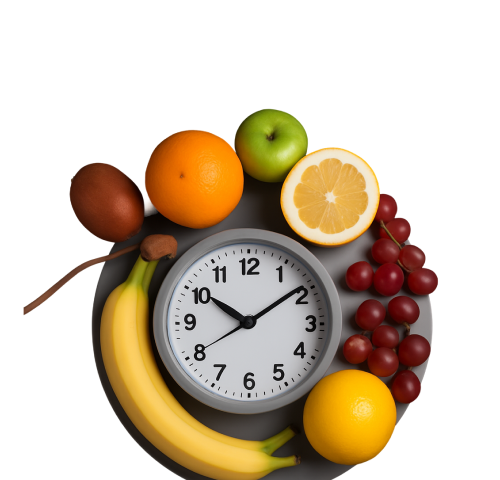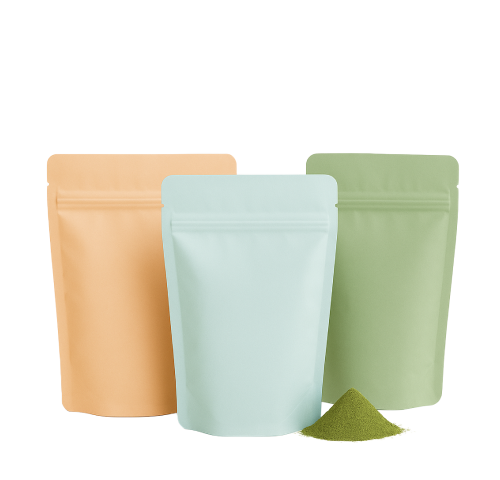3-Day Fasting Routine (Updated 2025)

Nourish Your Soul, Refresh Your Body
Fasting for three days might seem like a big challenge, but it's becoming more popular because of its health benefits. This method of fasting is not just about skipping meals, it's about giving your body a break and supporting your overall health. From improving your body's ability to repair itself to potentially aiding in weight management, a three-day fast has several potential benefits. This simple guide will introduce you to the basics of a 3 day fast routine.
- Last Updated: July 15, 2025
- The Science Behind Three Day Fasting
- The 3 Day Fasting Plan
- Supplies Needed For A 3-Day Fast Routine
- Jack Dorsey's Approach to 3 Day Fasting
- Day 1—The Beginning
- Setting the Tone
- Unwinding Practices
- 3 Day Fast Supplements
- Day 2—Adjusting and Overcoming
- Finding Balance
- Prioritizing Rest
- Day 3—The Home Stretch
- Sustaining Momentum
- Reflecting and Intending
- Breaking the Fast: Eating Your First Meal
- Chris Hemsworth's 4-Day Fasting Experience
-
-

The Science Behind Three Day Fasting
Fasting for three days can seem tricky, but the science behind it shows why it might be worth considering. This period of fasting taps into natural processes in your body, leading to a range of benefits.
- Autophagy: This is your body’s way of cleaning out damaged cells, to regenerate newer, healthier ones. A three day fast can kickstart this process, essentially giving your body an internal cleanup.
- Metabolic Benefits: Fasting can change how your body uses energy, shifting from using glucose to burning fat. This not only helps in losing weight but also improves metabolic health.
- Improved Cognitive Function: Fasting can boost long term brain function, improving focus and mental clarity.
- Detoxification: The fasting process encourages the body’s natural detoxification processes, as the digestive system gets a break.
- Emotional Resilience: Fasting can be a spiritual journey that offers a sense of achievement and enhances emotional strength.
- Discipline and Self-Control: Completing a three day fast requires discipline, which can spill over into other areas of life.
- Reduced Inflammation: A 3 day fast can decrease inflammation in the body and enhance your immune system.
Whether you choose a water fast or a bone broth fast, the key is to listen to your body and ensure you’re doing it in a healthy, informed way. Always consider consulting with a healthcare professional before starting any fasting regimen, especially if you’ve got existing health conditions.
-
The 3 Day Fast Plan
Starting a three-day fast requires more than just a decision, it needs preparation, both mentally and physically. Getting ready for this fasting period sets you up for success and makes the process smoother and more beneficial.
- Understand why you’re fasting: Are you looking for weight loss, detox, or mental clarity? Identifying your goals beforehand can help steer your focus.
- Set realistic expectations: Know that it might be challenging, especially if it’s your first time. Remind yourself why you’re doing it.
- Prepare mentally: Accept that you might face hunger sensations and mood swings. Mental readiness is a good idea to help you manage these moments.
Preparing for a three-day fast is about getting your mind and body ready for the experience. By setting clear intentions and understanding what to expect, you’re more likely to have a positive experience and minimize negative side effects.
-
Popular Supplies Needed For A 3-Day Fasting Routine
When you decide to fast for three days, having the right supplies can make a significant difference in helping you decrease body fat. Here are some common items you might need for your fasting journey.
- Filtered Water: Staying hydrated is key. Have enough filtered water to drink at least 2-3 liters per day. Consider using a Hydro Flask to maintain your hydration goals during a 3 day fast.
- Electrolyte Supplements: To maintain mineral balance, consider electrolyte supplements or make your own with salt, potassium, and magnesium.
- Herbal Teas: Non-caffeinated herbal green teas can be soothing and help you process food.
- Bone Broth: If you’re focusing on a bone broth fast, ensure you have high-quality bone broth available. It’s nutritious and helps reduce hunger.
- Journal: Keep a journal to note down your thoughts, feelings, and physical changes. It’s also a place to remind yourself of your fasting goals.
- Soy Wax Candles: Set a calming environment with soy wax candles. Their gentle, natural light can help soothe the mind and create a peaceful space, ideal for meditation or reflection during your fast.
-
Jack Dorsey’s Approach to 3 Day Fasting
Jack Dorsey, a notable figure in the tech world, has openly shared his fasting approach, incorporating a one-meal-a-day (OMAD) diet and following the practice of a water fast.
- One Meal a Day (OMAD): Jack Dorsey typically consumes one meal per day, focusing on nutritional density and balance.
- Water Fast: Occasionally, he goes on a three day water fast to increase the benefits of his fasting routine.
- Mental Clarity: One of the significant benefits of water fasting Jack Dorsey identifies is enhanced mental clarity, allowing for better decision-making.
- Perception of Time: Fasting has altered his perception of time, making days feel longer and more productive.
“Been playing with fasting for some time. I do a 22-hour fast daily (dinner only), and recently did a 3-day water fast. Biggest thing I notice is how much time slows down. The day feels so much longer when not broken up by breakfast/lunch/dinner.”
Jack Dorsey -
Day 1—The Beginning
The first morning of your three-day fast sets the tone for your fasting experience. Starting your day with a focused and calm routine can significantly impact your fasting journey.
- Start with Meditation or Light Stretching: Begin your day with a quiet meditation session or a light stretching routine. This helps calm your mind and prepares your body for the fasting process. We recommend using the Headspace App to efficiently start your meditation routine.
- Avoid Overeating: Resist the urge to eat excessively before starting the fast. Stuffing yourself, especially with carbs, can make the transition harder.
- Foods to Avoid: Skip high-carb foods, sugary snacks, and processed meals. These can spike your blood sugar and make the initial fasting period more challenging.
- Beneficial Foods: Opt for light, nutritious meals that are easy on your digestive system. Think lean proteins, healthy fats, and vegetables. Foods like avocados, nuts, seeds, and leafy greens can be ideal.
-
Setting the Tone
When you move into the afternoon of your first fasting day, maintaining energy levels and using your time productively become essential. This period can be challenging, but with the right activities, you can stay energized and focused.
- Focus On Hydration: Keep drinking water throughout the afternoon. Hydration is key to feeling alert and preventing fatigue. Get your hand on the top-class Hydro Flask to keep your body hydrated throughout the day.
- Mindful Breathing: Take short breaks for mindful breathing exercises to increase oxygen flow and revitalize your mind. You can enhance mindful breathing with online mindfulness courses.
- Afternoon Tea: Herbal and green teas can be soothing and provide a sense of nourishment without breaking your fast.
- Rest if Needed: Always listen to your body. If you feel tired, a short rest or power nap can do wonders for your energy levels.
- Reading or Podcasts: Engage in light reading or listen to podcasts. Choose topics that are uplifting or contribute to your well-being.
- Planning and Reflection: Use this time for planning your post-fast meals or reflecting on your fasting goals and motivations. You can use meal-planning apps to ensure you consume the right meals after the fast and stop eating disorders.
-
Unwinding Practices
The first evening of your fasting journey is a crucial time to implement practices that help you unwind and prepare for restful sleep. As your body begins to adapt to fasting, focusing on relaxation and sleep quality can enhance the benefits of your fasting routine.
- Reading: Choose a light book that interests you, helping to shift your focus away from food and towards relaxation.
- Listening to Soft Music: Soft, soothing music can calm the mind and ease any restlessness, promoting a sense of peace.
- Soothing Baths: A warm bath with Epsom salts can help relax your muscles and prepare your body for sleep.
- Dimming Lights: Begin to dim the lights an hour before bedtime to signal to your body that it’s time to wind down.
-
Supplements For A 3 Day Fast
During a 3 day fast routine, supplements can help you feel more comfortable and keep your body functioning well. While some people prefer to go without any extras, others find that the right supplements reduce side effects like headaches, fatigue, and poor sleep. Here’s a list of supplements you can take that won’t interfere much with your fast, especially if you’re not aiming for strict autophagy.
-
NMN + Resveratrol: Often taken together to support cellular energy and longevity. They don’t contain calories and can actually work well with a 3 day fast routine by supporting the same pathways triggered during fasting.
-
Electrolytes: Help prevent muscle cramps, headaches, and low energy during a fast. These are essential for hydration, especially if you’re only drinking water.
-
Multivitamins: Useful for filling nutrient gaps. Stick to capsules or tablets without added flavors or sweeteners.
-
Magnesium L-Threonate: Known for its support of brain health and memory. It’s well-absorbed and helpful during extended fasts if you’re feeling mentally foggy or restless.
-
Zinc: Can help maintain immune support during a fast but may cause nausea if taken on an empty stomach. Start with a low dose and monitor how your body responds.
-
Vitamin D3 & K2: These fat-soluble vitamins are okay to take during a fast. Absorption may be lower without food, but they’re still worth including.
-
Creatine: Has no calories and doesn’t raise insulin, so it’s fine for fasts. It can support mental clarity and help maintain muscle mass while you’re not eating.
-
Collagen Peptides: Contains amino acids and technically breaks a strict fast, but if your goal isn’t pure autophagy, it can support skin, joints, and gut health.
-
L-Theanine: Known for calming effects without making you sleepy. Helpful during longer fasts to ease mental tension and stay focused.
Supplements aren’t required for a 3 day fast routine, but the right ones can make the experience easier—especially if you’re doing it for the first time. Choose based on your personal goals and how your body responds during the fast.
-
-
Day 2—Adjusting and Overcoming
As you start the second day of your fasting journey, your body begins to adjust to this new state. It’s a crucial time to keep your mind engaged and your body relaxed. Incorporating slight variations in your fasting routine can help you decrease body fat and ease the fasting process.
- Introduce Gentle Yoga or Tai Chi: Adding a new activity like gentle yoga or Tai Chi can keep your mind engaged and your body relaxed. These practices enhance your awareness and bring a sense of calm.
- Change Your Meditation Focus: If you meditated on gratitude on the first day, consider focusing on mindfulness or visualization techniques on Day 2 with the Headspace App.
- Continue with Ample Water Intake: It’s essential to keep drinking plenty of water. If you’re engaging in activities like yoga, you might need more to stay hydrated. Keep your MyHydro flask close with you to maximize water intake.
- Electrolyte Balance: Maintain electrolyte balance with supplements or natural sources like a small pinch of Himalayan salt in your water.
-
Finding Balance
Day 2’s afternoon routine is all about maintaining your momentum while finding a balance between activity and rest. Keep focusing on the benefits of your efforts, like potential weight loss, improved digestion, and enhanced mental clarity, as you prepare for the final stretch.
- Short Walks: Engage in short, leisurely walks to boost circulation and energy. Fresh air and a change of scenery can be refreshing.
- Hydration with a Twist: Continue drinking water, but you might add a slice of lemon or cucumber for a refreshing change.
- Break Tasks into Smaller Steps: If you’re working or have tasks to accomplish, breaking them into smaller, manageable steps can help maintain focus and provide a sense of achievement.
- Prioritize Important Tasks: Focus on the most important tasks when your energy levels are higher. Save less critical tasks for when you’re feeling more drained.
-
Prioritizing Rest
The second night of your fasting journey is a crucial time to focus on rest. By implementing strategies to ensure an early bedtime and disconnect from digital distractions, you’re supporting your body’s natural relaxation processes.
- Plan for an Early Night: Aim to go to bed earlier than usual to maximize restorative sleep, aiding in the body’s healing process during the fast. If you’re having trouble sleeping, consider investing in a top-quality mattress.
- Screen Time Limitation: Begin winding down by turning off electronic devices at least an hour before bedtime. The blue light from screens can interfere with your natural sleep cycle.
- Use Blue Light Blocking Glasses: If you must use a device, utilize blue light blocking glasses to minimize exposure.
-
Day 3—The Home Stretch
Congratulations, you’ve made it to Day 3, the final day of your fasting journey. Today is about reflection, perseverance, and preparing to transition back to your regular diet.
- Journaling: Take some time in the morning to jot down your thoughts and feelings. Reflect on the challenges you’ve overcome and the insights you’ve gained.
- Meditation: A meditation session can help you center your thoughts and appreciate the journey you’ve undertaken. It’s a moment to recognize your achievements. Use the Headspace App to improve your meditation routine.
- Light Physical Activity: If you feel up to it, engage in light physical activity like walking or yoga. Always listen to your body and don’t push yourself.
Looking to focus on your fitness at home? Consider purchasing top-of-the-line resistance bands.
- Stay Hydrated: Continue drinking plenty of water to support your body’s detoxification process. Hydration must remain a key focus.
-
Sustaining Momentum
The final afternoon of your three day fast is a powerful period for physical and mental consolidation. It’s a time to celebrate your discipline and resilience and to reflect on your fasting journey.
- Maintain Fluid Intake: Keep drinking water or herbal teas to stay hydrated.
- Practice Deep Breathing: Short sessions of deep breathing exercises can boost your mental clarity and help maintain a calm state.
- Reflect on Your Experience: Take some time to think about what you’ve learned during the fast. What were the fasting challenges? What insights have you gained about your body and mind?
- Set Future Health Goals: Use this time to consider how you can apply the discipline and resilience you’ve demonstrated in other areas of your health and life.
- Visualize the Benefits: Remember the reasons why you started this fast. Whether for detox, weight loss, or mental clarity, visualize the benefits you’re about to reap.
- Stay Connected: If you’re fasting as part of a group or community, share your experiences and support each other through these final hours.
-
Reflecting and Intending
The final evening of your fasting routine isn’t just an end but a new beginning. It’s an opportunity to carry forward the discipline and insights gained into your daily life.
- Gratitude Practice: Reflect on the things you are grateful for from this experience. Perhaps newfound discipline, clarity of mind, or simply the ability to commit to and complete the fast.
- Mindful Eating Plan: Plan how you will reintroduce foods into your diet, aiming for mindfulness in portions, choices, and the act of eating itself.
- Nutritional Intentions: Set intentions regarding the quality of food you will consume. Consider integrating more whole foods, plant-based options, and nutrient-dense meals into your regular diet.
- Continued Hydration: Make a commitment to maintain your hydration levels even after the fast ends, recognizing the importance of water for overall health and well-being.
-
Breaking the Fast: Eating Your First Meal
After completing a three day fast, the moment you reintroduce food is crucial for your body’s adjustment back to its regular digestion and nutrition routine.
- Start Small: Your first meal should be small and easy to digest. Consider foods that are gentle on the stomach.
- Focus on Nutrition: Choose foods rich in vitamins, minerals, and antioxidants to nourish your body and support recovery.
- Hydrate: Continue to drink water and include hydrating foods like fruits or vegetables in your meals.
- Broths and Soups: A 3-day bone broth fast results in a gentle transition back to solid foods. Soups are also a great option.
- Steamed Vegetables: Lightly steamed vegetables are easy to digest and provide essential nutrients.
- Lean Proteins: Introduce lean proteins like chicken or fish to rebuild and repair your body.
- Meal Planning Services: Consider using a meal planning service designed for post-fast nutrition. These can provide balanced meal options tailored to the needs of someone just finishing a fast.
Planning your first meal after a fast with care is vital for a smooth transition back to regular eating habits.
-
Chris Hemsworth’s 4-Day Fasting Experience
Chris Hemsworth took his physical and mental endurance to new heights by embarking on a four-day fast for the show “Limitless.”
- Collaboration with Dr. Peter Attia: Chris Hemsworth teamed up with a renowned expert to ensure his fasting was both safe and effective.
- Extended Fasting Duration: If you’re looking to opt for a different type of fast, you can consider a four-day fast to deepen the fasting benefits.
- Regular Practice of Intermittent Fasting: Beyond the show, Hemsworth incorporates intermittent fasting into his lifestyle, noting significant improvements in energy levels.
“I had never fasted before and I knew this could be a challenge. The discussions were around intermittent fasting and restricted sort of feeding windows. And then it was like, oh we’ll do a day or a couple of days of fasting.”
Chris Hemsworth
-



















